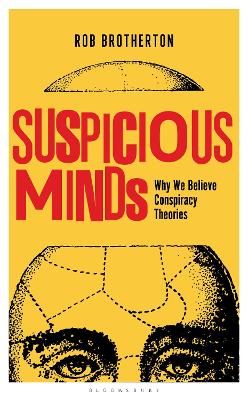Reviewed by gmcgregor on
Brotherton examines the history of conspiracy theories (despite feeling like conspiracy theories are especially prevalent in our era, they've been around and popular for hundreds of years) and some of the logical fallacies that underlie them (for example, the assumption that the "bad guys" are incredibly competent). He dismisses the notion than all conspiracists are paranoid crazies, but does cite research that shows that they are more likely to be hostile and close-minded than non-believers. One of the tidbits I found most interesting was that he showed how not only are people who believe in conspiracy theories more likely to believe in other conspiracy theories, they are more likely to believe in ones that directly contradict each other (say, simultaneously believing that Princess Diana faked her own death and that she was killed by the British royal family). He then goes into the processes that underlie our acceptance and belief in conspiracy theories (like our inability to accurately assess our own lack of knowledge and understanding) and why the brain holds on to them even in the face of evidence in opposition.
My quibbles with the book are probably fairly unusual, in that I wanted more academic detail. I thought I was going to get a fairly research-heavy book that went into at least some depth about the brain science underlying cognition. In fact, Brotherton spends a solid half of the book talking about history, defining "conspiracy theory", and gently pointing out that these theories require strained or even broken logic. Only in the second half does he even begin to get into the thought processes underlying conspiracy, and he never gets especially deep into it. It's clearly a book written for a generalist audience, which is fine, but with a background in the subject I wanted more.
Reading updates
- Started reading
- 9 April, 2016: Finished reading
- 9 April, 2016: Reviewed
